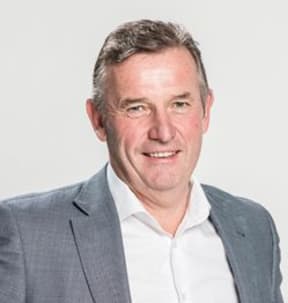On the back of our trucks we have many sayings, one of which is: "If we take care of the earth, it will take care of us."

Don Braid Photo: Supplied
This sums up how Mainfreight feels about the environment, and we view it as our personal responsibility to make sure we do not destroy this earth we live on, or the climate which provides for us all.
We see it as our job to deliver the essentials to our customers and, ultimately, to the world's population. This includes highly specialised hazardous materials transportation through our Chemcouriers network, which reduces contamination risks to the environment.
However, our reliance on diesel-burning trucks - and our inability to alter this - focused founder and chairman Bruce Plested early on in our history to do whatever possible to eliminate wastage and any harmful impacts on the environment we are able to control.
Since 1988, every branch in our network has been encouraged to recycle every material we can: glass, cardboard, paper, plastics, wooden pallets, food scraps, aluminium, steel - anything which makes a difference.
(In this series, being run to coincide with the Paris climate change talks, we will publish opinion pieces from Greenpeace, Sanford, the Motor Industry Association, 350 Aotearoa, Mainfreight, Federated Farmers and the Environmental Defence Society. Air New Zealand, Fonterra, Holcim and Genesis Energy were invited to contribute, but declined.)
We still have this mind-set and, as technology, science and awareness of climate change has evolved, we have taken bigger steps to mitigate our impact on the environment.
Wherever possible, our new buildings have rain gardens to purify water run-off before it enters waterways. We collect rain water from the roof to use for toilets, irrigation and truck washing. We have solar power installed on all new buildings, even when power is at cheaper levels than the capital return we get from the installation.
The reasoning is not wholly financial, rather a message to our people, our customers and suppliers, that we are serious about the environment; particularly so in Australia, where much of the electricity is generated from brown coal.
Here in New Zealand, our newest facility in Hamilton boasts a solar power installation which, by our understanding, is one of the largest of its type in Australasia. We are generating enough power to sustain our requirements during the day, and we can direct excess power back into the grid. Once new battery technology provides sufficient capability, we will use the excess power ourselves for night work.
As a consequence of becoming a global business we have been exposed to other countries' energy practices which, at times, seem far in advance of those we have in New Zealand, particularly in Europe. We are bringing those lessons, skills and equipment to our local operations and also to our businesses in Australia, Asia and the Americas.
Electric forklifts and manual pallet trucks are an example of this, replacing the diesel and gas forklifts of yesteryear.
We have rethought our use of road and are attempting to move more freight by rail. Our understanding is that trucks emit 4.6 times more CO2 per tonne for each kilometre carried than trains. We continue to take the opportunity to build more freight facilities on rail-served land.
While we may be criticised for continuing to advocate for KiwiRail, we believe rail is vital for the country's transport infrastructure. We urge the government to see rail as important, and to acknowledge it will require funding over a period of time to get its assets back into shape.
And to those in our industry who dispute the need to assist this funding with road taxes, open your minds to what a good railway service will do for our roads. It is the next best corridor, will reduce congestion and allow better utilisation of gear. Short-sightedness within the transport sector over these issues will be to the detriment of our country's future transport efficiency.
In short, we at Mainfreight "get" climate change and the effect it will have on our world. Where we can, we will embrace new science and technology to reduce our footprint on the earth, be that with electric trucks, more efficient road movements, utilising biofuels, more recycling or more solar power. Where possible, we will better support shipping lines and airlines which are also consciously trying to reduce their carbon footprint with slower steaming or increased aircraft efficiency.
We are not naive - we know our place in the supply chain has consequences for the planet but we play an important role in distributing the world's necessities, and by taking responsible decisions through the entire journey we can be less harmful. We would urge all others in our industry to do the same.
* Don Braid is the group managing director for global logistics and transport company Mainfreight, one of New Zealand's top 50 listed companies.

